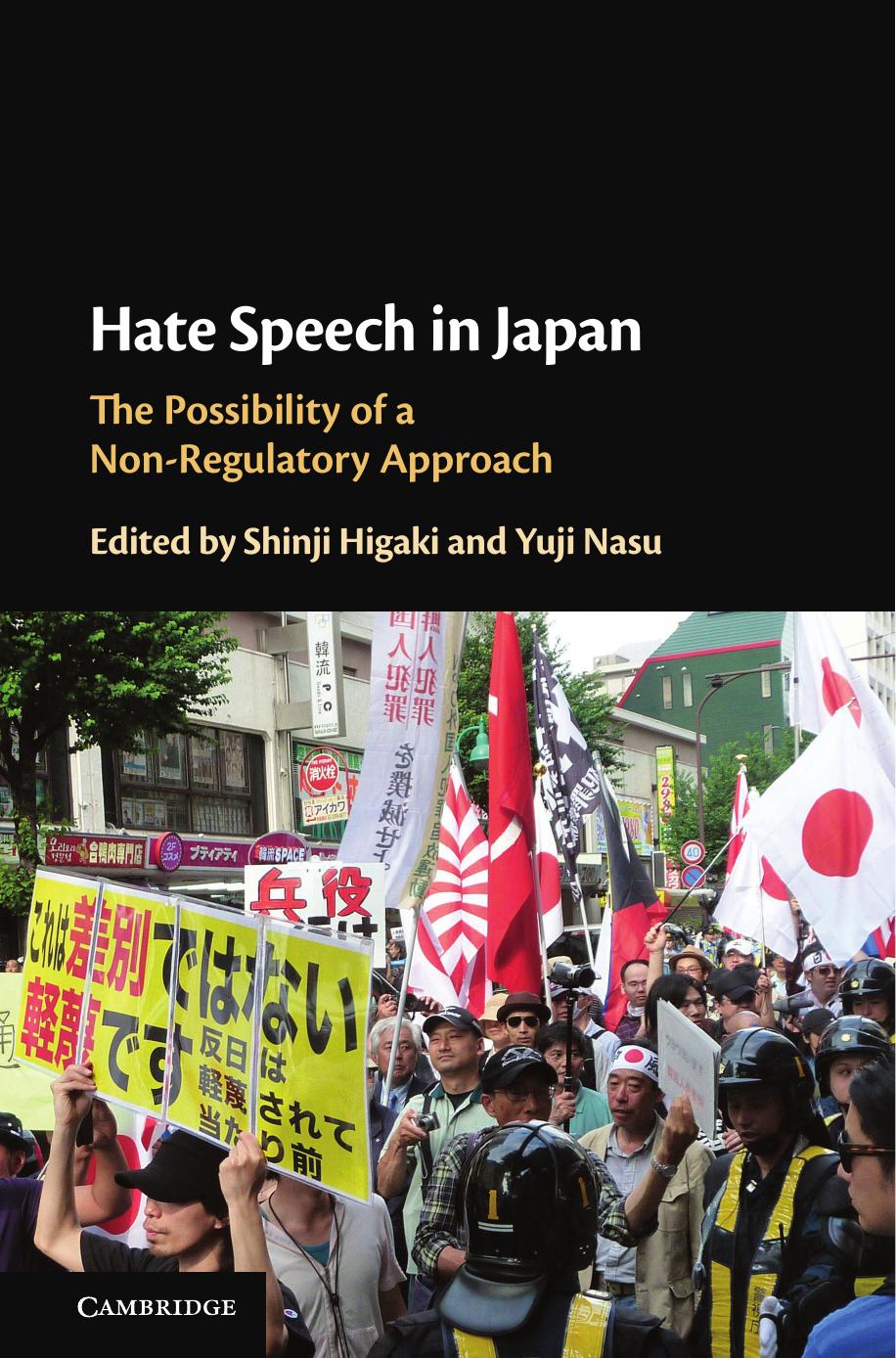Product desciption
Hate Speech In Japan The Possibility Of A Nonregulatory Approach Shinji Higaki Yuji Nasu by Shinji Higaki & Yuji Nasu 9781108483995, 1108483992 instant download after payment.
"Introduction Yuji Nasu & Shinji Higaki Countries around the world have been commonly troubled with the problem of hate speech, but their responses vary. Constitutional law scholars often use two models for analysis, which are the US model that hesitates to regulate hate speech not directed at particular persons, and the European model that favours regulations, including ones not directed at particular persons. Most governments regulate hate speech broadly, meaning that the European model has so far held sway, but this simple classification has been under reconsideration recently. On one hand, the United States strictly regulates hate speech targeting particular individuals, using hate crime or harassment laws. It is also said to adopt a rigid private/public distinction, consequently tolerating a wide variety of private regulation in broadcasting, universities, workplaces, and so on. On the other hand, some European nations are unwilling to execute regulatory laws, thus watering down the effect of legal regulation. Still, the contrast of these two models is useful for researchers' analyses. As the recent Charlottesville affair exemplifies, it remains a significant fact that the Unites States does not regulate hate speech in public places. Japan has never had civil or criminal laws regulating hate speech that is not targeted at particular persons. In this sense, the country appears to adopt the US model. It can also be pointed out that Japan is much more negative towards hate speech regulation than the United States, in that it does not have any hate crime and harassment laws, and private institutions generally have no special rules for hate speech. This Japanese model is particularly unique in the world, and civil libertarians may applaud it for respecting the freedom of speech. However, Japan has not deliberately selected free speech over minority interests as a consequence of battles for free speech against government suppression. Rather, the country could be criticised for simply being apathetic about minority interests. In this regard, Japan differs from the United States, where the people, including minorities, have consciously opted for free speech in the long-term struggle over government censorship. This landscape of Japan has changed completely since the late 2000s, when large numbers of extremists began calling vehemently for the exclusion of Koreans and Korean-Japanese from the Korean neighbourhoods of major cities and elsewhere across the country. This compelled the national and local governments to take another look at the traditional Japanese model that is largely indifferent to minority interests. As described above, Japan has not yet punished hate speech, but since the late 2000s, it has developed a wide variety of innovative measures against hate speech. At the national level, the Japanese Diet enacted the Hate Speech Elimination Act (hereinafter "HSEA") in May 2016. This law does not criminally regulate hate speech; it only declares that "unfair discriminatory speech and behaviour will not be tolerated". However, it is not a completely symbolic law. Proposers of the HSEA explain that every statute should be interpreted in the light of this law, and that public officials and administrative organs should refer to it in enforcing laws or regulations. One of the principal proposers of the HSEA and a contributor to this volume, Katsuo Yakura, emphasised the American-style content neutrality principle in the course of deliberation of this law. However, US scholars may have some doubts on this perception of the content neutrality principle and argue that this directing of interpretation violates the principle itself"--
ISBN : 9781108483995


